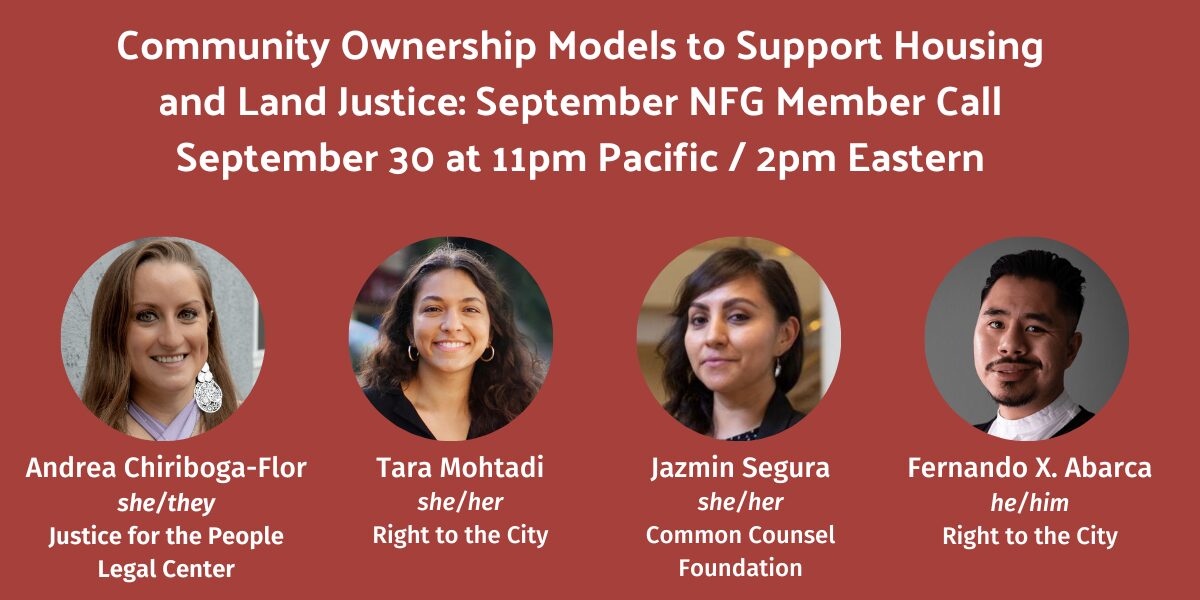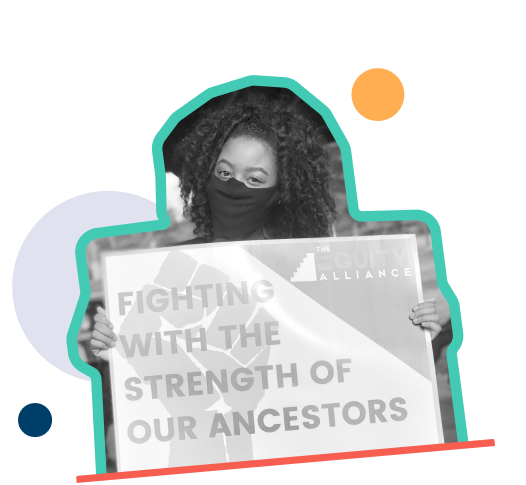Countless generations of my family were raised in Rivers State Nigeria until weapons of war removed them from their ancestral lands. Understood by many immigrants, Palestinians, Black, Indigenous, and communities of color across the world, the impact of violence lives in the memories and bodies for generations to follow. Those experiences sparked my curiosity to join philanthropy to better understand the relationship between the Wall Street-driven resources of our field and the conditions that displace people from their homes and communities. I remain in philanthropy because I am inspired by the work of tenants, renters, and movement organizations that fight displacement and create regenerative systems of self-determination.
Our systems of housing, land use, labor, and foreign policy are predicated on the same conditions that displace and extract wealth from communities such as my family’s and millions around the world. At NFG’s Democratizing Development Program, funders and movement organizations learn together to resource solutions that advance housing justice and build community power. Our coordinating committee of funders meet regularly to share strategies for how to make the case for housing justice within our institutions.
For the past year, we’ve been developing a report, Building Collectively: 4 Takeaways from Movement-led Community Ownership Models, that provides insights from grantees on ways to disrupt the cycles of violence that threaten to undermine economic opportunity, dignity, and peace for communities. The report highlights how movement building organizations are co-creating ecosystems to launch and grow community ownership models that promote self-determination and prevent displacement. Those models are crucial for addressing the myriad of demographic and socio-economic changes that are anticipated to impact the country in the next fifty years. For philanthropy, the report’s takeaways can offer a roadmap in navigating strategy shifts your institution may be considering. Readers will also find examples throughout Building Collectively of how funders can strive to foster meaningful relationships with grantee partners, organize their peers, and support solutions that actually disrupt the extractive housing and financial systems that create cycles of harm.
On September 30 at 11am PT/2pm ET, DDP and our partners at Common Counsel Foundation, Justice for the People Legal Center, and Right to the City will host an NFG Member Call to connect with peer funders and learn from contributing participants of the report. Please click the link below to register.

As a former funder, I know all too well there are a myriad of institutional challenges that folks in philanthropy face while moving resources to the ground. In order to break down these barriers, I believe it is important for us to hear from the movement leaders who bear the brunt of philanthropy’s overly burdensome and often prescriptive grantmaking procedures. With this report, and all of the work that follows, DDP will continue to address the intersecting crises within the housing economy by centering impacted communities.
To learn more about resourcing housing justice, sign up for DDP’s newsletter. Please stay in touch as we prepare for NFG’s 2025 Nashville Convening and lift up new pathways for funders to learn about why incorporating tenant powerbuilding into your strategy can translate to durable systems change and immediate impact.
In solidarity,
Chimene Okere
Director, NFG's Democratizing Development Program

